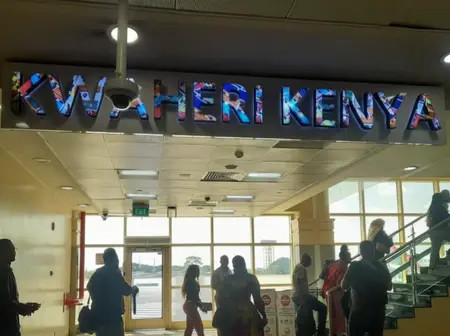Parliament is currently debating the Air Passenger Service Charge (Amendment) Bill, 2025, which seeks to overhaul the distribution of funds collected from air travel fees.
Sponsored by Majority Leader Kimani Ichung’wah, the Bill proposes adding the Kenya Meteorological Service Authority (KMS) as a beneficiary of the charge, alongside the Kenya Airports Authority (KAA) and the Kenya Civil Aviation Authority (KCAA).
It also recommends redirecting allocations from the Tourism Promotion Fund to the Tourism Fund, as established under the Tourism Act (Cap. 381).
According to the proposal, this reallocation aims to eliminate duplication of functions, improve operational efficiency, and centralise financing for tourism-related initiatives — particularly those requiring strategic or blended funding.
Clause 30 of the Meteorology Bill, 2023, outlines the establishment of KMS, which has historically faced budget constraints that have hampered its ability to deliver timely and accurate weather forecasts.
Currently, the air passenger service charge is levied on all domestic and international travellers, with proceeds shared among KAA, KCAA, and the Tourism Promotion Fund. If passed, the amendment would expand the list of beneficiaries to include KMS while streamlining tourism sector financing through a single fund.
The Air Passenger Service Charge Act is a law that governs the collection and distribution of a levy imposed on passengers departing from airports in Kenya. This charge applies to both domestic and international travellers and is included in the cost of airline tickets.
Its main purpose is to generate revenue for the maintenance, development, and improvement of aviation infrastructure, as well as to support related services in the transport and tourism sectors.
Under the Act, the funds collected are channelled to specific government agencies tasked with managing and regulating Kenya’s aviation industry.
These typically include the Kenya Airports Authority (KAA), which oversees the operation and maintenance of airports, and the Kenya Civil Aviation Authority (KCAA), which regulates civil aviation safety and standards.
A portion of the funds is also allocated to the Tourism Promotion Fund to finance initiatives that market Kenya as a travel destination.
The Act provides the legal framework for setting the rates of the passenger service charge, outlining how it is collected by airlines, and stipulating how the proceeds are distributed among beneficiaries.
Over time, amendments have been proposed to expand the list of beneficiaries, streamline fund allocation, and ensure the charge continues to support the broader goals of improving aviation services and promoting tourism in Kenya.

Leave a Reply